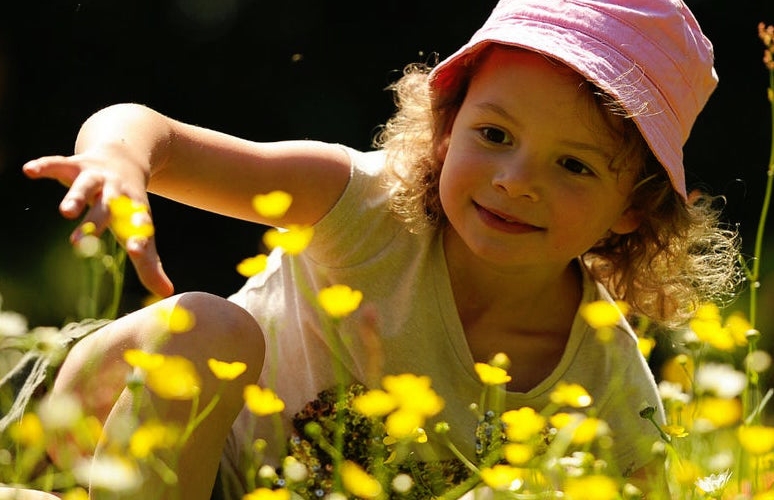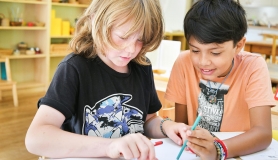DO Wild Explorers
The National Trust’s yearly ’50 Things To Do Before You’re 11 3/4’ challenge is a feast of ideas for activities for kids to try out. Usually the Trust’s estates and grounds are buzzing with children pond dipping, climbing trees and flying kites, but this year, they remain closed. However, the Trust has rejigged its list to make the connecting-with-nature quest lockdown-friendly. Try back garden- or park-friendly tasks such as creating wild art, setting up a snail race, making a daisy crown or making friends with a bug.
DO and MAKE Water Riot
Phew! It’s hot! Planning some back garden water fights, but want to skip the single-use plastics? Try making your own water balloons. These origami designs are super-easy and fun to fold as a family, or, if you’d like something a little more permanent, try crocheting some in rainbow colours!
MAKE Ray Bans
UV rays are beating down, so keeping babies and children frazzle-free in the sun is a top priority. Learn more about how to keep delicate skin safe using chemical or physical barriers here. In addition to using physical barriers, you might like to make your own sunscreen for extra protection. Find a recipe – and arguments for and against home-made screens – here
MAKE and RECIPE Rosy Days
Rose blossoms in the hedgerow herald the start of high summer. Dog rose, wild rose, or briars not only look beautiful, they also taste delicious. If there’s an abundance of them near you, or if you have roses growing in your garden, pick a few petals to make rose water to flavour turkish delight or cakes. Rose water is also the simplest and most delicious smelling of skin care products – find ideas for how to make and use it here.
RECIPE and LEARN Cookery School
The nation has turned to baking and home cooking during lockdown, and many children are lending a hand in the kitchen. As well as having delicious results, baking can teach us lots about science. Sourdough relies on wild yeast and bacteria, dulce de leche can teach us about the Maillard method and it’s the stretch in gluten that ensures that dough can be pulled into long noodles. Find an overview at the New Scientist or take a deep dive into each recipe – and find out how the incredible aquafaba works and why homemade cultured butter tastes more buttery - here.
What we’ve been reading this week:
Too many kids show worrying signs of fragility from a very young age. Here’s what we can do about it.
“How do you innoculate a child against future anguish? What do you do if your child already seems overwhelmed in the here and now?” Read more here
Found something inspirational to read that you’d like to share? Want to share your lockdown creations with us? Have an idea for things to do? We’d love to hear from you. Email Kate







